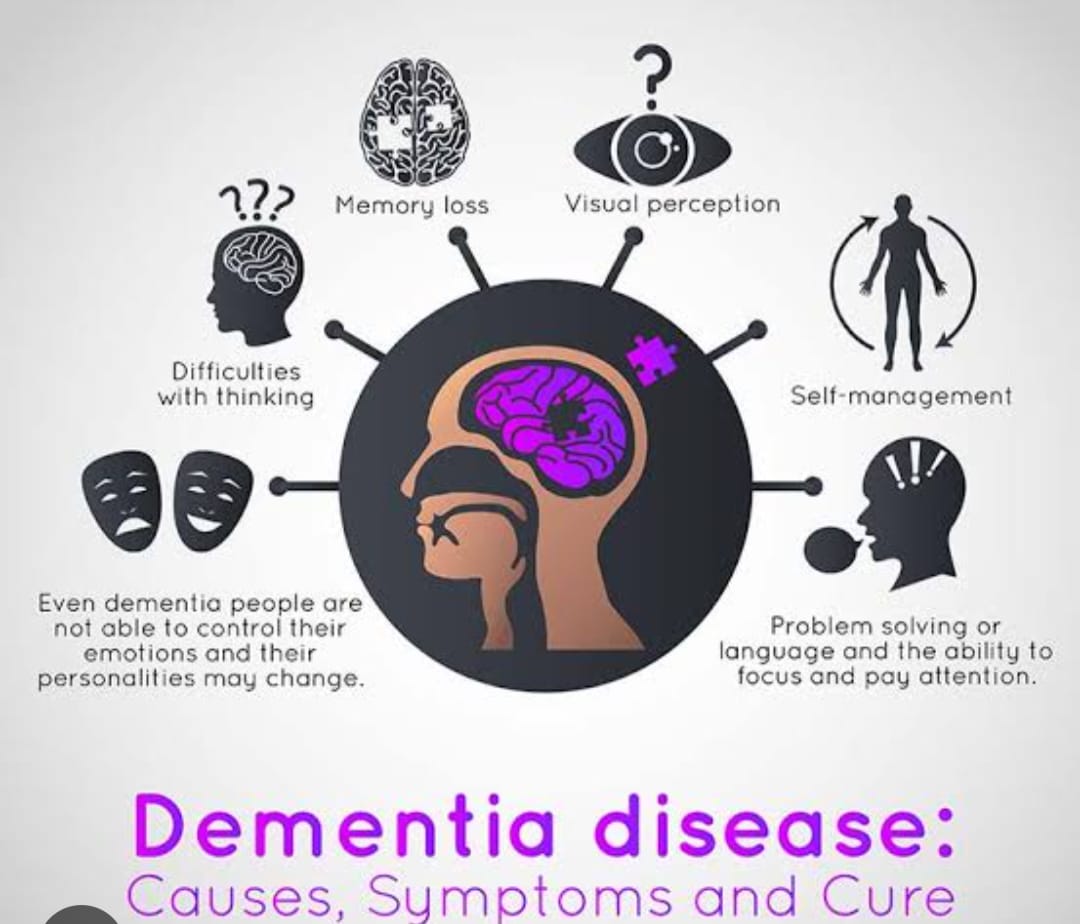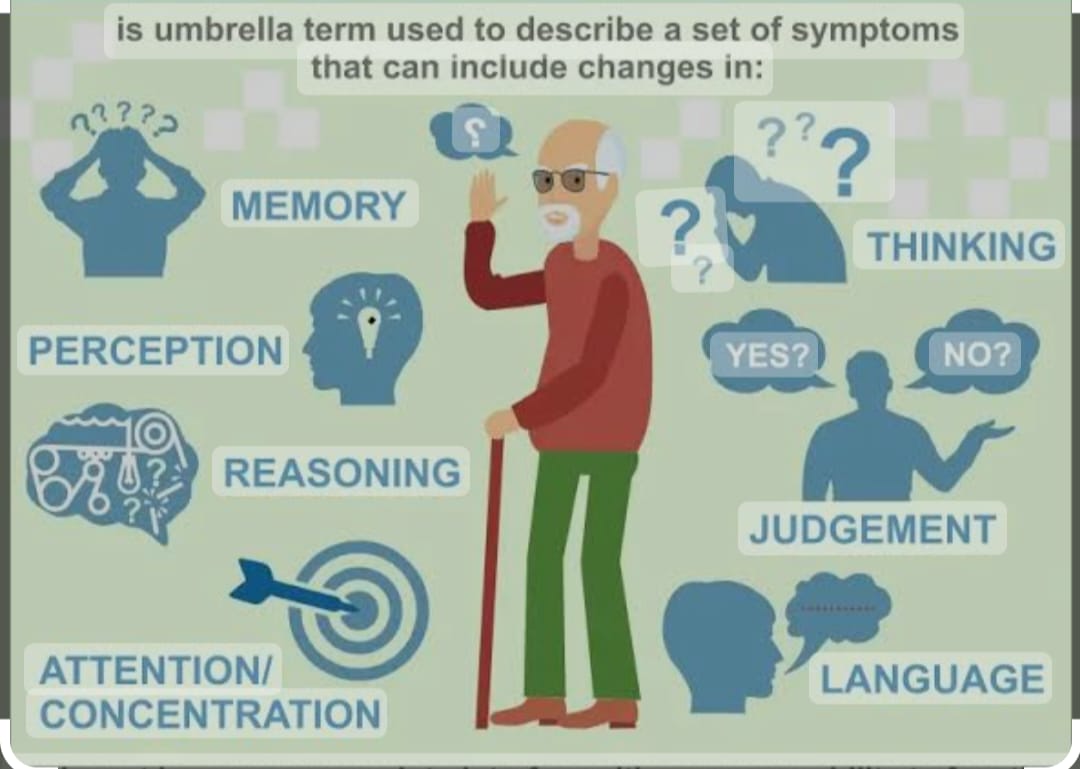Dementia
Not only is it tough to think about what kind of care you would want at the end of your life; it can be difficult even to imagine what the circumstances might be like. Yet it`s important to consider these things while were healthy, so we can decide how we want to be cared for if we become too sick to speak up for ourselves.
Dementia is a decline in mental functioning in which memory, thinking, judgment and the ability to concentrate are impaired. There also may be a change in personality. Dementia can develop suddenly when a severe injury, disease or toxin destroys brain cells, or it can develop slowly, especially in senior citizens.
Memory and the ability to recognize people, places and objects diminish over time. Usually, there are problems with word usage and abstract gradually.
The most common cause of dementia is Alzheimer`s disease. In Alzheimer`s disease, parts of the brain degenerate, destroying brain cells and reducing the response of the brain`s chemical messengers. The first sign may be forgetting recent events, though sometimes it starts with depression, fear, anxiety or personality changes. Speech patterns may change. Over time, the individual may deteriorate to the point that social interaction is difficult.
The second most common cause of dementia is successive strokes. Although weakness or paralysis typically is not observed, these small strokes destroy brain tissue caused by interrupted blood supply. Typically, the dementia caused by small strokes may deteriorate or improve. If diabetes and hypertension can be appropriately controlled, the person may prevent future strokes.
Dementia may occur after a brain injury or cardiac arrest. Depending on the cause, dementia progresses at different rates for different people.
Often, the first symptom is forgetfulness. Some people are able to hide their condition well. They may avoid activities such as balancing a checkbook, reading or working. They might forget to do important tasks like paying bills, turning off the light or stove, or have trouble distinguishing reality from fictio. In the most advanced cases, people become withdrawn and unable to control their behavior. They may have angry outbursts, mood swings, get lost even in familiar surroundings, or lose the ability to speak.
Diagnosis and Treatment
Physicians diagnose dementia after questioning the patient and the family, taking into account the progression of the disease and the presence of other diseases. It is essential that the patient`s medication be evaluated, since prescription drugs or drug interaction can be a causative factor. Other causes may be toxic exposure; thyroid imbalance; infections; nutrient deficiencies; or depression. MRI and CT scans may rule out brain tumor, hydrocephalus or stroke.
Homeopathic Treatments
Homeopathic remedy play a promising role in the early treatment of Alzheimer`s and other conditions involving poor memory and dementia. One of the chief benefits is they have low toxicity compared with pharmaceutical agents. The sooner the treatment is begun, the better the outcome. Therefore, if clients have family members with a history of Alzheimer`s disease, or other states involving poor memory, they may start taking these remedies prior to the onset of symptoms to delay or possibly prevent the advent of symptoms.
It also has promising long-term therapies for people suffering from memory loss, dementia and Alzheimer`s disease.



